Health campaigners and government agencies are continuing to gun for the sweet stuff. But, when it comes to baking, not all sugars are created equal
Bakers could be forgiven for feeling a little bitter about continued calls for sugar reduction. In March, government agency Public Health England announced a range of sugar reduction targets – having previously challenged food and drink manufacturers to voluntarily cut overall sugar by 20% across a variety of products. That, of course, is more easily said than done in bakery products.
“Yeast nourishment, water control, improvements in leavening and gelatinisation of dough, plus browning and caramelisation are key features of sugar inclusion and key to the baking process,” says John Danby, group sales director at Corcoran Chemicals. “Remove them and the process and products break down.”
One option for bakers is smaller portion sizes rather than reformulation. “Our research tells us consumers view sweet bakery items as an indulgent reward and are very much of the ‘everything in moderation’ mind-set, so we’ve seen an increase in consumption of mini products,” says Dawn Foods marketing manager Jacqui Passmore.
Chris Ormrod, MD of Ministry of Cake, says the most effective way for his company to reduce sugar in its products is in the amount of icing. “Removing the side masking of cakes and/or reducing the number of filled layers can yield easy wins and, with some of our cakes, can show a total sugar reduction of 15-20%.”
He adds that the company is looking at, and experimenting with, possible sugar alternatives in its sponges – but admits it is slow work. “Sugar plays an important functional part in how a cake bakes and we don’t want to rush into unproven territory.”
Another route open to bakers is the use of natural sugars and syrups over refined sugar. David Colcombe, UK chef consultant at the Federation of Quebec Maple Syrup Producers, says maple syrup offers bakers a flavoursome sweet tone that can be used in a variety of baked goods.
Sugar and syrups supplier Ragus suggests the use of invert and golden syrups in low-fat products allows for a reduction of between 20% to 40% over granulated sugar because they are sweeter.
“The fructose in invert sugars acts as a flavour attractant in baked goods, so this will allow other ingredients that are not sugars to come through in the taste profile,” explains Ragus director Ben Eastick. “For darker baked goods, a switch from granulated sugar to treacles, which contain invert sugars and molasses, can reduce total sugar content, while adding flavour, colour development, minerals and trace elements.”
Eastick says syrups also have an advantage over granulated sugar as they are ready to use, which can reduce time, energy, labour costs and machinery requirements.
While some bakers may feel they can ignore demands for healthier reformulation, there are concerns that doing nothing risks the introduction of a ‘sugar tax’ on baked goods. Such fears will have been compounded by a Nielsen survey last month, which revealed more than 60% of UK consumers think an upcoming sugar levy on soft drinks also applies to cakes and biscuits.
Ormrod says this is a concern: “My main objection to a sugar tax is that it just doesn’t get to the nub of the question – a combination of portion size and personal responsibility for consumption.”
And Rob Hill, sales and customer service manager at Hambleton Bakery, which uses natural raw sugars, says: “Sugar is a natural flavouring agent in some products, so is necessary. Applying a sugar tax is punishing everyone.”
Research into sweet alternatives continues
Ingredients suppliers continue to drive the search for the most effective sugar replacer.
Ulrick & Short has launched Avanté, a range of functional clean-label starches and flours developed to partially replace sugar in baked goods. The company says the tapioca-based product works by mimicking the functionality of sugar. It comes in powder form and is easy to dose with minimal reformulation required, says the supplier.
Avanté is said to enable bakers to reduce sugar by up to 25% in frostings and as much as 50% in some sweet fillings. Ulrick & Short claims this can be achieved with no adverse effect on texture, taste or mouthfeel.
The ingredient has already been used by a leading bakery on a range of products aimed at children, leading to a 15% sugar reduction in the cake, which was followed by a similar reduction with the frosting. The baker has now decided to use Avanté across its whole range.
Dawn Foods has used wheat starch to replace some of the sugar in a range of Crème Cake mixes, including chocolate and vanilla, reducing both sugar and fat by at least 30%.
Macphie, meanwhile, has cut the sugar content in some of its cake and muffin mixes by 30% by using inulin, a vegetable fibre made from chicory root.
“It’s 100% natural with a taste and texture that means the consumer doesn’t even need to know they are eating a reduced-sugar product,” says Macphie commercial director Richard Cox.
Macphie products with reduced sugar include Mississippi Muffin/Cake Mix, Mississippi Chocolate Muffin/Cake Mix, Rainbow Vanilla Frosting and Rainbow Chocolate Frosting.
Naturally based sugar alternatives, such as erythritol and xylitol, are gaining some ground as viable contenders. They already work well in replacing sugar in confectionery, but in the bakery sector, as previously mentioned, simply replacing the sweetness is only part of the requirement.
US food tech start-up Unavoo has launched a natural sweetener designed to completely replace sugar in foods including bakery products. Unavoo Sweetener is prebiotic, made only from natural ingredients and is entirely free from artificial sweeteners, using natural stevia and dietary fibres to cut sugar without affecting the taste. And, most importantly, the bad tastes associated with stevia have been blocked thanks to the use of a ‘special carrier’.
The company says the first industrial-scale production tests have been successfully completed and products including chocolate, ice cream and bakery items with no added sugar will be available later this year.


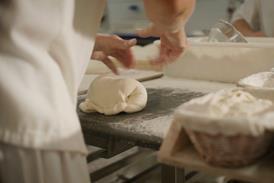

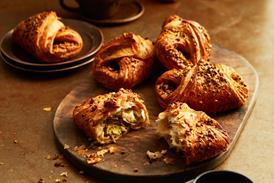
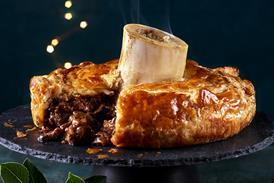
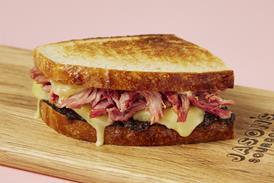


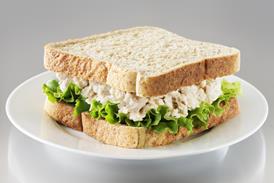




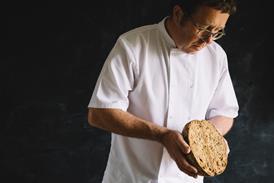
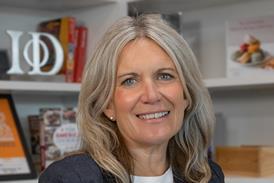


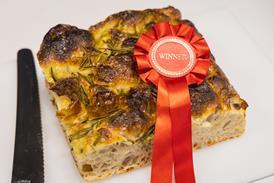




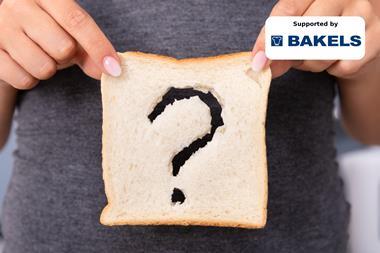


No comments yet